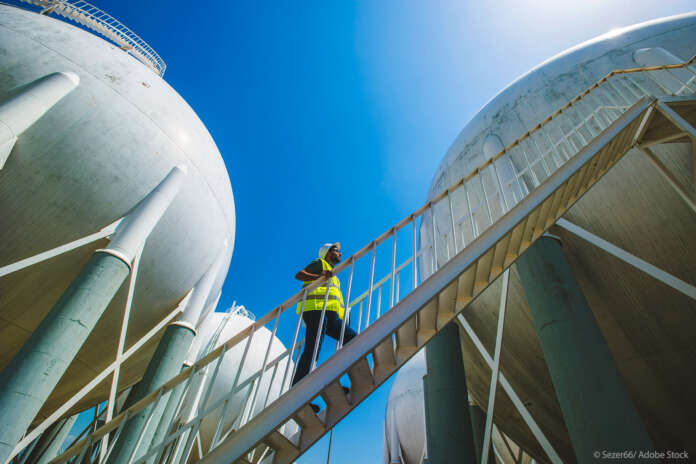According to the data of the Hungarian Energy and Public Utilities Regulatory Authority, the total volume of gas stored in domestic facilities reached 5.44 billion cubic meters (bcm) in mid-November, which is 86.02 percent of the total capacity, 19 per cent more than a year ago.
Based on the schedule defined in the gas storage regulation of the European Union, Hungary had to compulsorily store 35 per cent of its five-year average consumption by 1 November, which translates to 3.65 billion cubic meters.
To ensure supply security Hungary exceeded the amount stipulated by the EU regulation by 1.79 billion cubic meters on 15 November by almost 50 per cent, informs the Hungarian regulator.

The central problem of the 2021/22 gas year throughout Europe was the extraordinary price increase, resulting mainly from the lack of supply due to disrupted Russian pipeline imports, said the Vice President of the Hungarian Energy and Public Regulatory Authority, Pál Ságvári at a recent event of the Regional Centre for Energy Policy Research (REKK).
He noted that the price increase entails a significant financing requirement from energy traders, which has not yet been solved, because the increased costs represent a huge burden for all players in the sector.
The biggest change of the Hungarian gas market was the start of imports from Serbia from October 2021, accompanied by a significant drop in imports from Ukraine before it completely stopped this year. Under a 15-year deal signed last year, before the start of the war in Ukraine, Hungary receives 4.5 billion cubic metres (bcm) of gas per year via Bulgaria and Serbia under a long-term deal with Russia.
Mr Ságvári pointed out that gas storages were at a record low level in the spring, but by the start of the heating season, Hungary managed to build up sufficient gas stock, which ensures winter supply.
In the industrial sector, which is more exposed to price increases, consumption decreased by around 10 per cent in the 2021/22 gas year, while residential consumption has not changed significantly so far, informed the regulator.
Regarding the preparation from the winter of 2023/24, Pál Ságvári warned that the further increase in the gas imports from non-Russian sources will run into limits, so Europe must prepare to deal with a possible partial lack of resources too.
In 2021, Hungary consumed 11.06 billion cubic metres (bcm) of natural gas. Highly dependent on Russian energy, around 80 per cent of this gas was coming from Russia.




